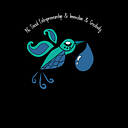RC SDG 13 Climate Action Challenge Program Ends with Team Presentations to the Jury
Author: İpek (Grade 9)
Editor: Barış (Grade 12)
SDG 13 Climate Action Challenge Program is designed to create a space for RC students from different grade levels to take action as a team on the climate crisis and to build capacity among the student body by using design thinking for social, ecological, and economic sustainability. Throughout this program, teams practiced three essential knowledges:
- Understanding others and the ecosystem in which they operate
- Brainstorming different ideas as a team to come up with a solution
- Creating a prototype that will reflect the prominent features of a design
At the end of this 8-month project development program, which was enriched by design thinking workshops, SDG 13 Climate Action Challenge teams got together to present their solution ideas to honorable jury members.
Jury members were Ümran Üngün (Assistant Head & CFO of RC), Adam Oliver (Headmaster of RC), Zeynep Bodur Okyay (Head & CEO of Kale Group), Zeynep Özler (RC’98, Corporate Communications Manager of Kale Group), Prof. Dr. Levent Kurnaz (Boğaziçi University Center for Climate Change & Policy Studies Director), Gemma Bulos (Director of Kravis Lab for Social Impact, Founder of Global Women’s Water Initiative), Dr. Uygar Özesmi (Environmental Scientist, Ashoka Senior Fellow, Good4Trust Founder & Instigator), Durukan Dudu (Co-Founder of Anadolu Meraları), and Selin Gören (RC’20, Yale University, Eco- entrepreneur).
Team 1: Your Drop
Team 1’s problem statement is that RC faculty, students, and staff cannot keep track of their water footprint on campus. Team members deduced that if RC community know their water usages, they can start taking action to decrease the amount of wasted water. So, this team added a new section to RC’s student application. In this new section, students will be able to see their water usages which will be calculated through a device replaced in various places in the campus. It will also provide facts about the water crisis and mini quizzes. Juries asked whether the users will be able to know their water footprint in every area of their lives or not. Team said that this design is a pilot, so the users will be able to know their water usage only in the cafeteria for now.
Team 2: Soil Redemption
Team 2’s problem statement is that the RC community had lost their connection with the soil and thus they don’t have memories with it. To solve this problem, they decided to create a permaculture garden on the RC campus. RC students will be voluntarily working in this garden to create a bond between the campus soil and themselves. Organic foods from this garden will either be used in the cafeteria or they will be sold. Team 2 is planning on organizing storytelling nights in which people will share their memories with the soil. Durukan Dudu said that he will be supporting this team whenever they need help and suggested that they collaborate with Permatürk.
Team 3: RC Food Forest
Team 3’s problem statement is that the RC community is not aware of the importance of soil even though our campus is surrounded by it. So, they designed a food forest on campus with diverse edible plants. In this way, they will be creating permaculture awareness at RC. Team 3 is planning to sell the products from this garden in a pop-up store. Jury members suggested that they include animals like chickens in this forest as they are a part of a forest ecosystem too. Team will check the permission of animals at school with the administration and consider bringing them to the forest.
Team 4: Naturavis
Team 4 identified lack of awareness about the environmental harms of the products we use everyday and having difficulties while finding alternative products as the problem. So, they developed an application which informs its users about the products’ effects on the environment and suggests eco-friendly products. By using this app, users will be aware of their ecological footprints, they will be able to find alternatives, and finally make a change in their lives. Team 4 is planning to have sponsorships with companies that have sustainable products.
How will the teams be supported?
At the end of the team presentations, juries went into a breakout room to discuss the prizes and the support they would like to give to each team. Here is the outcome of their discussion:
- Team 1 will be supported by Derin Uras Fund (USD 250).
- Team 2 and Team 3 will be supported by Charlie Hoppin Fund (USD 500).
- Team 4 will be getting three leadership mentoring lunches with Mr. Oliver, RC Head of School, and three leadership mentoring lunches with Ümran Üngün, RC CFO.
Also, all four teams will be supported by RC Social Entrepreneurship, Innovation, and Creativity Office during the implementation stage of their projects.
At the end, the jury members appreciated how teams successfully used design thinking to create a real-world project. They stated that they were deeply touched, and all of them promised to support the teams along their journeys.
Event Doodle by Duygu Erbayraktar
